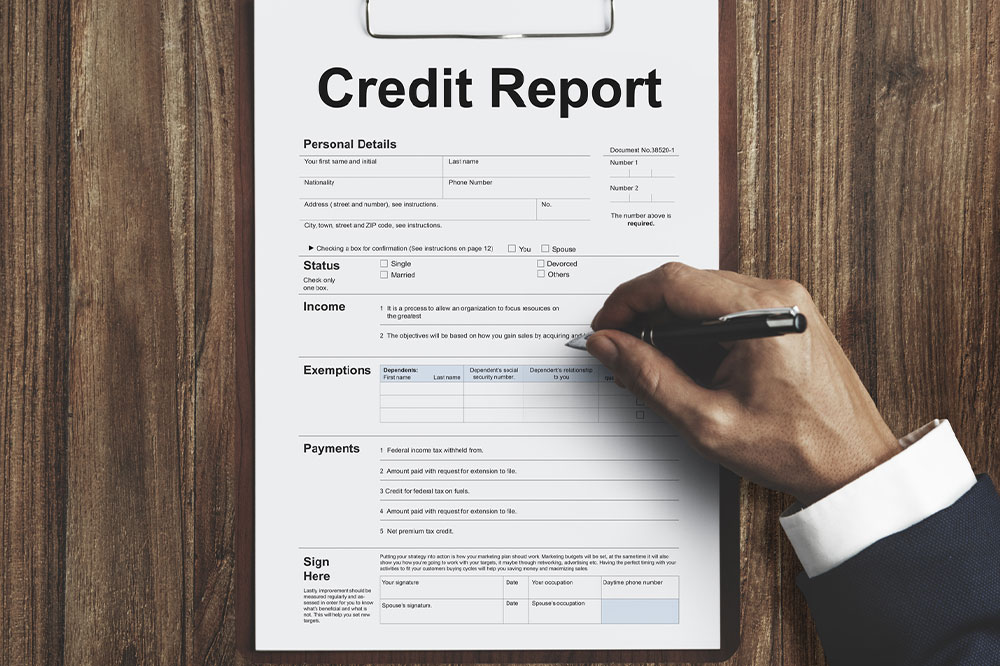
Everything to know about credit reports
To monitor your credit score and identify any potential issues, it’s important to regularly review your credit reports. Financial institutions rely on this comprehensive record to assess a person’s creditworthiness, making it a financial resume. Understanding how to interpret the information in your credit report is crucial as it reveals your spending habits. Before diving into how to read it, let’s first explore what you need to know about credit history.
What is in your credit report?
A credit report is a detailed account of a borrower’s repayment of loans or debts. Financial institutions, credit card businesses, and other organizations from which one has previously borrowed or still owes funds will contribute certain details to the credit report. It may also contain other information obtained from publicly available sources.
What does a credit report include?
A credit report includes the following details:
Personal information
Your credit report will consist of your name, SSN, and date of birth. The report will also contain contact details like telephone numbers, email IDs, and current and former addresses.
Employer history
Your credit report will include a list of your current and past employers. Your employment history may also be mentioned in the personal data section.
Since your past employment has little to do with your credit history, it does not impact your credit score. However, discovering incorrect information in your credit report, such as unfamiliar company names or employers you haven’t worked for, can be worrisome as it is meant to verify your identity.
Public records
Bankruptcies and collection accounts are all listed in this portion of the individual’s credit report. The dates listed in this section must be carefully examined since they will directly impact how long they remain on an individual’s credit history and how they influence that person’s credit score.
Credit score information
A credit score from 300 to 900 is a three-digit indication of your credit history. It is determined using all the data on your credit report that is readily available. The credit rating is used to determine if you qualify for a loan. Therefore, it is considered during the approval procedure. You will be granted the sum if your credit score satisfies the lender’s qualification standards.
Here’s how to read a credit score’s range:
A credit rating under 500
A credit score below 500 is considered a negative one. Banks and financial institutions will view anyone with a score under 500 as a risky borrower with a high likelihood of missing payments.
A credit score between 550 and 649
Potential lenders won’t consider a person credible if their score ranges from 550 to 649.
A credit score between 650 and 699
It is a standard credit score. With this, there is a probability that one’s loan application won’t be turned down.
A credit score between 700 and 749
This range demonstrates that the applicant has a strong credit history, making them qualified for an unprotected loan or credit card.
A credit score of 750 or higher
This excellent credit score demonstrates one’s mastery of personal financial management. One will likely get loans at the lowest interest rates.
Tips to consider when checking the credit report
Check for errors in spelling and identity information
Verify that all of the personal data on the credit report is accurate. Your credit report should only contain information on you, not about your dependents, ex-spouse, or anybody with the same name.
Carefully examine every account data, especially the payment history
Examine your credit history thoroughly to ensure that the payment record is accurate. Verify the accuracy of the account’s existing credit limits or initial loan amounts. Your credit use, which affects your credit rating, may suffer if the credit limit reported is smaller than the one you have.
Why does the credit score matter?
Credit reports are a crucial part of your financial situation. Your ability to obtain a mortgage depends on your credit, which determines what kinds of credit cards, insurance policies, and interest rates you are eligible for.
Excellent credit scores can make it simpler for financial institutions to approve your credit programs, increasing the likelihood of being given better loan terms, such as a low fixed rate, a greater credit limit, or reduced interest rates.
How to get credit reports?
There are several ways to check your credit scores. You can request a free copy of your credit report every year from any of the three major credit bureaus, including Equifax, Experian, and TransUnion. You can also:
Visit the website AnnualCreditReport.com
Call on the number (877) 322-8228 and request your credit report
Download and fill up the Annual Credit Report Request form and mail it to the Annual Credit Report Request Service.
To improve your credit score, it’s important to read and understand the information in your credit reports. Regularly examining your credit files can help ensure that all information is accurate.




